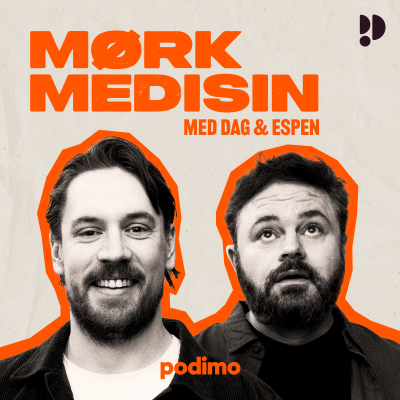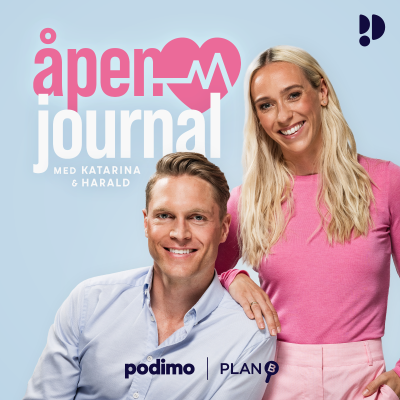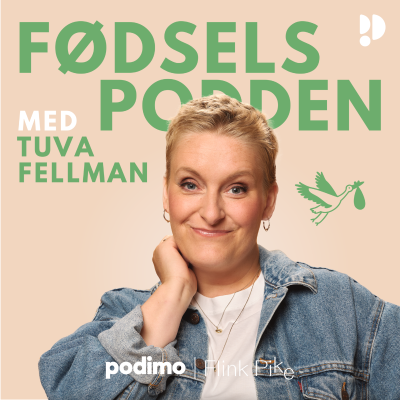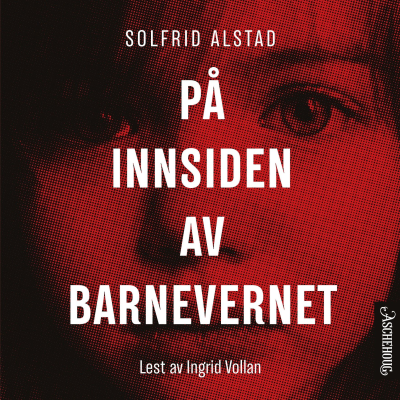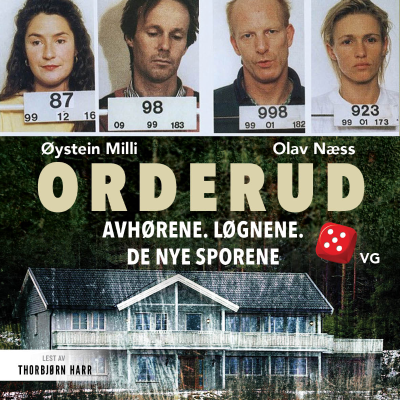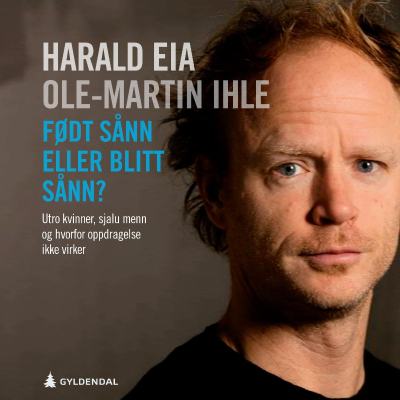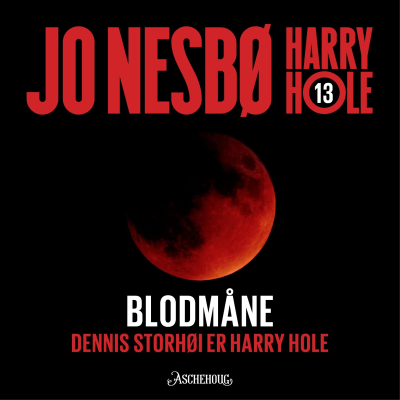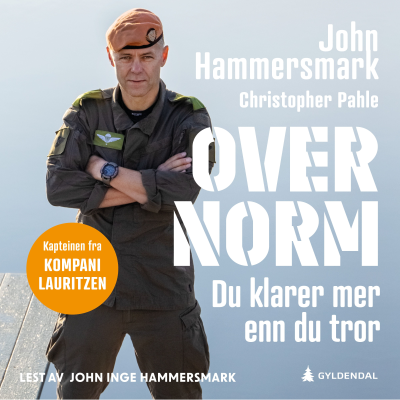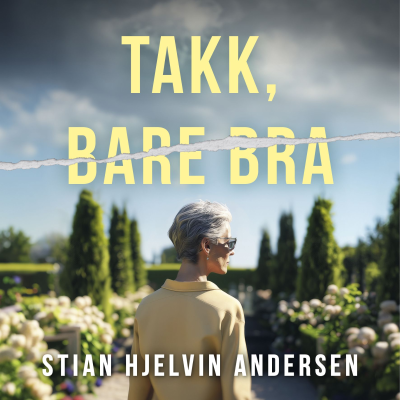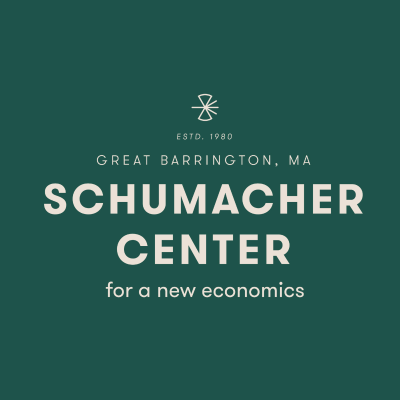
The Schumacher Lectures
Podkast av The Schumacher Center for a New Economics
Prøv gratis i 14 dager
99 kr / Måned etter prøveperioden.Avslutt når som helst.

Mer enn 1 million lyttere
Du vil elske Podimo, og du er ikke alene
Rated 4.7 in the App Store
Les mer The Schumacher Lectures
The 1st Annual E. F. Schumacher Lectures of October 1981 emphasized the importance of vibrant regional economies at a time when the focus of the nation was on an expanding global economy. Much has happened since then. The promise of the global economy has faded in face of ever greater wealth disparity and environmental degradation. There is growing interest in building a new economy that is just and recognizes planetary limits. The speakers of the Schumacher Lecture Series continue to be at the forefront of this movement. Visit centerforneweconomics.org/donate to support our work.
Alle episoder
63 EpisoderJulian Aguon is an activist lawyer and writer from Guam and the author of the acclaimed new book, The Properties of Perpetual Light. He is the visionary behindBlue Ocean Law [https://solidairenetwork.us9.list-manage.com/track/click?u=ad8c544a405f77a2b2eb50971&id=be8d39a3f7&e=23a173ef07], a progressive firm that works at the intersection of Indigenous rights and environmental justice. He serves on the Council ofProgressive International [https://solidairenetwork.us9.list-manage.com/track/click?u=ad8c544a405f77a2b2eb50971&id=a31b22fcf4&e=23a173ef07]—a global collective that launched in May 2020 to mobilize progressive forces around the world behind a shared vision of social justice. Aguon delivered his lecture at the 41st Annual E.F. Schumacher Lectures on October 24, 2021.
Winona LaDuke—an Anishinaabekwe (Ojibwe) member of the White Earth Nation—is an environmentalist, economist, author, and prominent Native American activist working to restore and preserve indigenous cultures and lands. She graduated from Harvard University in 1982 with a B.A. in economics (rural economic development) and from Antioch University with an M.A. in community economic development. While at Harvard, she came to understand that the problems besetting native nations were the result of centuries of governmental exploitation. At age 18 she became the youngest person to speak to the United Nations about Native American issues. In 1989 LaDuke founded the White Earth Land Recovery Project [https://centerforneweconomics.us5.list-manage.com/track/click?u=69d509d113032e3126c4543ce&id=47a81c0378&e=00b827080e] in Minnesota, focusing on the recovery, preservation, and restoration of land on the White Earth Reservation. This includes branding traditional foods through the Native Harvest [https://centerforneweconomics.us5.list-manage.com/track/click?u=69d509d113032e3126c4543ce&id=672e6b5f02&e=00b827080e] label. In 1993 LaDuke gave the Annual E. F. Schumacher Lecture entitled “Voices from White Earth.” That same year she co-founded and is executive director of Honor the Earth [https://centerforneweconomics.us5.list-manage.com/track/click?u=69d509d113032e3126c4543ce&id=ec069868d4&e=00b827080e], whose goal is to support Native environmental issues and to ensure the survival of sustainable Native communities. As executive director she travels nationally and internationally to work with Indigenous communities on climate justice, renewable energy, sustainable development, food sovereignty, environmental justice, and human rights. Among the books she has authored are All Our Relations: Native Struggles for Land and Life (1999, 2016); The Winona LaDuke Reader: A Collection of Essential Writings (2002); Recovering the Sacred: The Power of Naming and Claiming (2005); The Militarization of Indian Country (2013). LaDuke’s many honors include nomination in 1994 by Time magazine as one of America’s 50 most promising leaders under 40; the Thomas Merton Award in 1996, the Ann Bancroft Award for Women’s Leadership in 1997, and the Reebok Human Rights Award in 1998. In 1998 Ms. Magazine named her Woman of the Year for her work with Honor the Earth. She was inducted into the National Women’s Hall of Fame in 2007, and in 2017 she received the Alice and Clifford Spendlove Prize in Social Justice, Diplomacy, and Tolerance. Winona LaDuke was an active leader as a Water Protector with the Dakota Access Pipeline protests in 2017 at Standing Rock, where the Sioux Nation and hundreds of their supporters fought to preserve the Nation’s drinking water and sacred lands from the damage the pipeline would cause. Over the years her activism has not deviated from seeking justice and restoration for Indigenous peoples. Leah Penniman is an educator, farmer/peyizan, author, and food justice activist from Soul Fire Farm [https://centerforneweconomics.us5.list-manage.com/track/click?u=69d509d113032e3126c4543ce&id=83b1020939&e=00b827080e] in Grafton, NY. She co-founded Soul Fire Farm in 2011 with the mission to end racism in the food system and reclaim our ancestral connection to land. Penniman is part of a team that facilitates powerful food sovereignty programs – including farmer trainings for Black & Brown people, a subsidized farm food distribution program for people living under food apartheid, and domestic and international organizing toward equity in the food system. Penniman holds an MA in Science Education and BA in Environmental Science and International Development from Clark University. She has been farming since 1996 and teaching since 2002. The work of Penniman and Soul Fire Farm has been recognized by the Soros Racial Justice Fellowship, Fulbright Program, Omega Sustainability Leadership Award, Presidential Award for Science Teaching, NYS Health Emerging Innovator Awards, and Andrew Goodman Foundation, among others. She is the author of Farming While Black: Soul Fire Farm’s Practical Guide to Liberation on the Land (2018). [https://centerforneweconomics.us5.list-manage.com/track/click?u=69d509d113032e3126c4543ce&id=1d575946cf&e=00b827080e]
Since the early 1980’s Hazel Henderson’s name has been synonymous with impact investing. Probably more than any other person, Henderson has been responsible for creating and promoting a set of social and environmental indicators by which to judge the real health of an economic system including the well-being of its citizens and its ecosystem. These indicators are then widely used to guide business practices and investment decisions. A prolific commentator and critic of contemporary economics, Henderson launchedEthical Markets Media [https://centerforneweconomics.us5.list-manage.com/track/click?u=69d509d113032e3126c4543ce&id=202913ca73&e=00b827080e]to provide a platform for discussion of these issues and to showcase examples of a well-being approach. We are proud to honor over four decades of collaboration with Hazel Henderson with this Conversation. Juliet Schor is both a sociologist and an economist. That unique combination leads her to ask what the citizen/consumer can do to affect a more just and regenerative economy and conversely explores the impact of our current economic system on our daily lives. The titles of her books speak to this dual interest: * The Overworked American: The Unexpected Decline of Leisure * The Overspent American: Why We Want What We Don't Need * Born to Buy: The Commercialized Child and the New Consumer Culture * Plenitude: The New Economics of True Wealth Publishers Weekly named her just releasedAfter the Gig:How the Sharing Economy Got Hijacked and How to Win It Back, one of the Big Indie Books of 2020. In it Schor examines how the platform economy which promised flexibility and new opportunities for workers instead became exploitive. Her carefully researched book goes on to offer strategies for how citizens can take back these platforms so that they are tools for a better way of working leading to a more regenerative economy. Not surprising, one of the problems she points to is corporate for-profit ownership of the platforms themselves. She instead recommends a cooperative ownership by the users on the platform.
Neva Goodwin is co-founder and co-director of the Global Development And Environment Institute at Tufts University [http://www.ase.tufts.edu/], where her projects have included editing a six-volume series, Frontier Issues in Economic Thought (published by Island Press) and a Michigan Press series, Evolving Values for a Capitalist World. She has edited more than a dozen books, and is the lead author of three introductory textbooks: Microeconomics in Context, Macroeconomics in Context, and Principles of Economics in Context. Over the past decade Dr. Goodwin led the creation of a “social science library” called Frontier Thinking in Sustainable Development and Human Well-Being [http://www.ase.tufts.edu/gdae/education_materials/ssl.html] which contains nearly 10,000 full bibliographic references, representing seven social sciences, and including full text PDFs for a third of the referenced articles and book chapters. Stewart Wallis was the executive director of the New Economics Foundation [http://neweconomics.org/], the UK’s leading think tank for social, economic, and environmental justice, from 2003 through 2015. He graduated in Natural Sciences from Cambridge University and began his career in marketing and sales with Rio Tinto Zinc. After receiving a master’s degree in business and economics at London Business School, Wallis spent seven years with the World Bank in Washington, DC, working on industrial and financial development in East Asia. He then spent nine years with Robinson Packaging (UK), the last five years as Managing Director leading a successful business turnaround. In 1992 he joined Oxfam as International Director, gradually assuming responsibility for 2500 staff in 70 countries and for all Oxfam’s policy, research, development, and emergency work worldwide. In 2002 he was awarded Officer of the British Empire (OBE) for service to Oxfam. Stewart Wallis is also a board member of the New Economy Coalition (USA), Vice-Chair for the World Economic Forum’s Global Agenda Council on Values, and Trustee of the Forum’s Inclusive Growth Global Challenge. His expertise includes global governance, functioning of markets, links between development and environmental agendas, the future of capitalism, and the moral economy.
Otto Scharmerunderstands the stages of consciousness that are necessary to achieve transformation – whether that be transformation of the self, transformation of a group initiative, transformation of a business, or systemic change. His Theory U training is a step by step exploration of these stages in different settings. An economist by training, his application of Theory U to our economic system provides one of the clearest blueprints of how to move “from an old paradigm of economic thought that revolves aroundego-system awareness to a new paradigm that revolves aroundeco-system awareness, by which I mean focusing on a compassion-based well-being of all, the well-being of the whole” His work at MIT’s Presencing Institute [https://centerforneweconomics.us5.list-manage.com/track/click?u=69d509d113032e3126c4543ce&id=de31dbf13c&e=00b827080e] “activates a means of learning that connects people to their deeper sources of creativity—that is, to their capacity for intuiting and then actualizing emerging future possibilities.” Matt Stinchcomb is the cofounder of The Boatbuilders, a new initiative that provides financial, strategic, and tactical support to organizations, projects, and communities working to build a more resilient future in the Hudson Valley. Prior to this, he was the Executive Director at the Good Work Institute, a nonprofit organization with a mission to cultivate, connect, support, and illuminate a network of people and initiatives working towards Just Transition in the Hudson Valley. Before heading up the Good Work Institute, Stinchcomb was the VP of Values and Impact at Etsy.com. In that role he oversaw the stewardship of the company’s mission, and worked to give all employees the means and the desire to maximize the benefit their work has on people and the planet. Stinchcomb serves on the Board of Directors for the Schumacher Center for a New Economics, Hawthorne Valley Association, and The Good Work Institute. He is a graduate of Oberlin College and lives in Rhinebeck, NY with his wife and children.

Rated 4.7 in the App Store
Prøv gratis i 14 dager
99 kr / Måned etter prøveperioden.Avslutt når som helst.
Eksklusive podkaster
Uten reklame
Gratis podkaster
Lydbøker
20 timer i måneden

